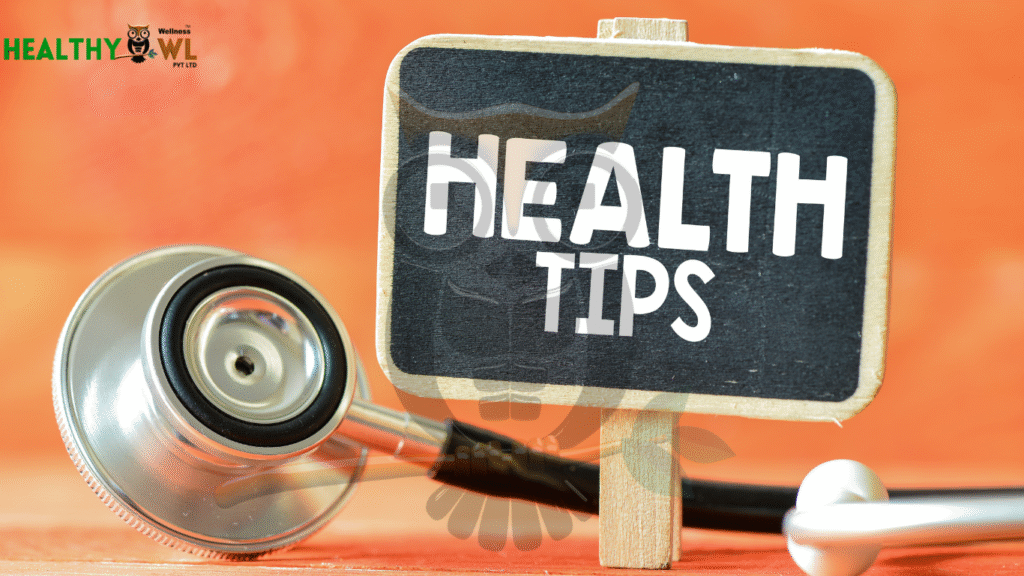Working the night shift can feel like living in an upside-down world. While the rest of the world sleeps, you’re wide awake, doing your best to stay productive and alert. But when your body’s natural rhythm is out of sync, it’s not just sleep that suffers—your overall health can take a hit too. The good news? With the right strategies, you can maintain your health, keep your energy up, and thrive, even on the night shift. Let’s dive into ten essential tips that can help you stay healthy while working against the clock.
1. Prioritize Sleep Like a Pro
When you work nights, sleep can quickly become your biggest challenge. To avoid sleep deprivation and its serious health impacts, make rest a priority. Aim for 7-9 hours of sleep by creating a dark, quiet, and cool sleeping environment. Invest in blackout curtains, wear an eye mask, and use white noise machines if necessary. Reducing exposure to blue light from screens before sleeping can also be beneficial, as it disrupts melatonin production. Developing a consistent sleep schedule—even on your days off—can help your body adjust better.
2. Manage Your Meals Smartly
Your body’s internal clock influences digestion, so eating the right food at the right time is essential. Plan for lighter, nutrient-dense meals before your shift, and save heavier, protein-packed meals for mid-shift to maintain energy levels. Emphasize eating fiber-rich foods (whole grains, fruits, and vegetables) to aid digestion, which can become sluggish due to irregular hours. Avoid greasy or sugary snacks, which can cause a quick energy spike followed by a crash. Instead, opt for nuts, fruits, yogurt, or vegetables to keep your energy steady throughout the night.
3. Time Your Caffeine Intake Wisely
Coffee is a night-shift worker’s best friend, but it’s important to use caffeine strategically. Drink coffee or tea at the start of your shift to boost alertness, but avoid it in the last few hours of work to prevent it from interfering with your post-shift sleep. Caffeine can stay in your system for up to 6 hours, so plan accordingly. Decaffeinated herbal teas are a great post-shift option to help you unwind.
4. Get Moving During Breaks
Night shifts can lead to long periods of sitting, which can make you feel sluggish. Incorporate short bursts of physical activity during your breaks to improve circulation and wake yourself up. Simple stretches like neck and shoulder rolls, a brisk walk, or even a few jumping jacks can help get your blood pumping and reset your energy levels.
5. Stay Hydrated
Dehydration can make you feel even more tired, so staying hydrated is crucial. Keep a water bottle with you and take small sips throughout the shift. Consider drinking hydrating beverages like coconut water or herbal teas to prevent dehydration without the sugar spikes. Try to avoid sugary drinks or energy drinks loaded with caffeine and artificial ingredients—they may give you a quick boost but lead to dehydration and energy crashes later.
6. Exercise Before Your Shift
Regular exercise helps regulate your body’s internal clock and can boost your overall mood and energy levels. Try incorporating moderate exercise in the late afternoon or early evening before your night shift. This primes your body for activity and can prevent fatigue during your shift. Just be sure to avoid vigorous exercise right before bed, as it may make it harder to fall asleep.
7. Create a Post-Shift Wind-Down Routine
Just like daytime workers need time to unwind after a long day, night shift workers need to de-stress before bed. Develop a relaxing routine to signal your body that it’s time to sleep. This could include a warm shower, meditation, or reading a book. You can also enjoy warm herbal teas (like chamomile) as part of the wind-down routine to further promote relaxation. Avoid bright screens (like phones and computers) as they can trick your brain into staying alert longer.
8. Snack Wisely
Snacking is inevitable during night shifts, but the key is to snack smart. Keep healthy snacks like mixed nuts, fruits, or yogurt within reach, as these will help you maintain energy levels without the crash that comes from sugary treats. Practice portion control to prevent overeating, which can lead to sluggishness. Also, avoid large meals toward the end of your shift, as digestion can interfere with your ability to fall asleep after work.
9. Practice Stress Management
Night shifts can take a toll on your mental health as well. Practice stress-reducing techniques like deep breathing, yoga, or meditation to help manage work-related stress. Set boundaries for digital communication after work to prevent mental relaxation. Talking to colleagues or loved ones about your experience can also provide emotional support.
10. Use Light to Your Advantage
Light exposure is one of the most powerful tools for regulating your body’s clock. During your shift, try to get exposure to bright lights, as this will signal to your brain that it’s time to be awake. On your way home, however, consider wearing sunglasses to minimize light exposure and help your body wind down for sleep.
Conclusion
Working the night shift doesn’t have to mean compromising your health. With the right strategies—such as prioritizing sleep, managing your meals, staying hydrated, and keeping active—you can feel energized and stay in control of your well-being. It may take time to adjust, but with these tips, you’ll be well on your way to thriving during those late hours.
Looking for more health and wellness tips?
Visit Healthy Owl Wellness today and discover how we can help you create a personalized plan to support your well-being—day or night!
Sources:











